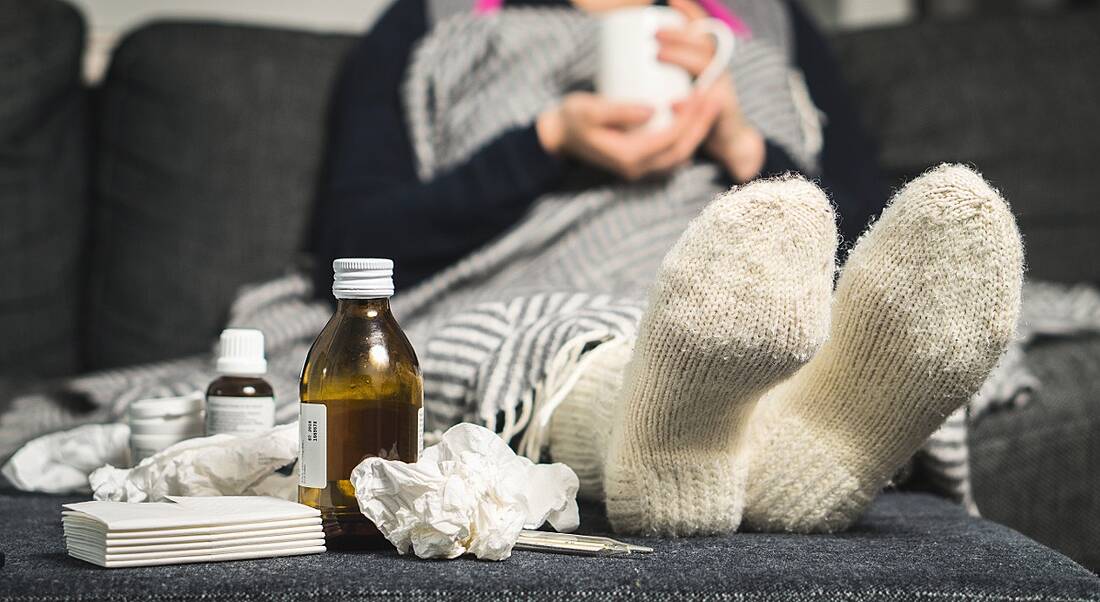Don’t feel like coming down with something this holiday season? These tips could help you avoid getting sick.
The festive season is both the least ideal time to fall ill and probably the exact time it is most likely to happen. Is it unavoidable though? Not necessarily.
There are a few things within your control that you can do to make it significantly less likely that you will come down with a nasty bug just as the holidays are due to start.
Hygiene is key
Though it’s something you should be doing anyway, be especially mindful of how clean your workspace is at this time. Often when you contract colds and other illnesses, the source can be from surfaces that a person carrying a virus or infection has come into contact with.
Use antibacterial wipes to clean your desk, phone screen and computer screen every so often. It is also worth being extra dutiful in your hand-washing habits and investing in an alcohol-based hand sanitiser to keep at your desk. Also, keep some antibacterial hand sanitiser on your person and make a point to disinfect after shaking hands with people.
It may also be worth looking into getting a flu shot. Though there is a growing (and frankly worrying) vaccination-averse movement, flu shots are generally believed to be safe. The idea that the flu shot can make you sick or cause a whole host of side effects has been roundly debunked.
Mind your diet
Really, you should be minding your health all year round. Yet keeping up healthy habits is especially essential at this time of year.
To a certain degree, there is only so much control you have over whether you’ll come into contact with someone who is sick. You can, however, do a few things to keep your immune system in good enough shape to fight off sickness, and one of them is avoiding food that is bad for you. Living a healthier lifestyle will, as you can expect, go a long way towards ensuring you are fit enough to beat cold viruses before they strike.
In terms of diet, eat plenty of Vitamin C-rich fruit, lots of cruciferous vegetables such as spinach and kale, and snack on nuts that are high in zinc.
Get some sleep
Though it’s easier said than done, getting the appropriate seven to nine hours of sleep per night is vital.
Sleep deprivation will negatively impact your immune system, reducing the amount of infection-fighting antibodies and cells in your body, and therefore making it more likely that you will get sick when you come into contact with viruses and infections. It may also affect your recovery time.
During sleep, your body produces proteins called cytokines that need to increase when you are unwell. So, if you’re catching enough Zs, you’re less likely to catch a cold.
Exercise to boost the immune system
You may be eyeing up the new year as a time to start getting fit after holiday festivities have died down, but why wait? Now is as good a time as any to start exercising regularly, particularly if you’re hoping to fend off illness.
There are numerous studies demonstrating that exercise can reduce the incidence of illness – both communicable diseases such as viral and bacterial infections and even non-communicable diseases such as cancer and chronic inflammatory disorders. Furthermore, recent studies have effectively debunked the myth that rigorous exercise will dampen immune response.
Yet you don’t have to spend hours on the treadmill to see the benefits. Incorporating even light exercise such as a daily brisk walk could make a difference.
Keep stress levels low
The holidays can be a stressful time of year, both professionally and otherwise. Though there is much celebration, fanfare and even extended time off work for some when offices close, the lead-up can rattle even the strongest of psychological constitutions. Between shopping for presents, the health-testing bacchanals that can be Christmas parties and the pressure to wrap up before the new year, you may find yourself under a lot of stress.
Stress has been proven to lead to dysregulation of the human immune system. Since interest in the connection between infection and stress was stirred in the 1980s, hundreds of studies have shown that experiencing stress will lead to a significant dip in every aspect of your immune system
Now is as good a time as any to examine how well you can cope with the workload you currently have. Things such as getting aforementioned healthy amounts of sleep, eating well and exercising will also contribute to stress reduction. Incorporating meditation into your daily routine, and ensuring you have a solid routine more broadly, will also help.




